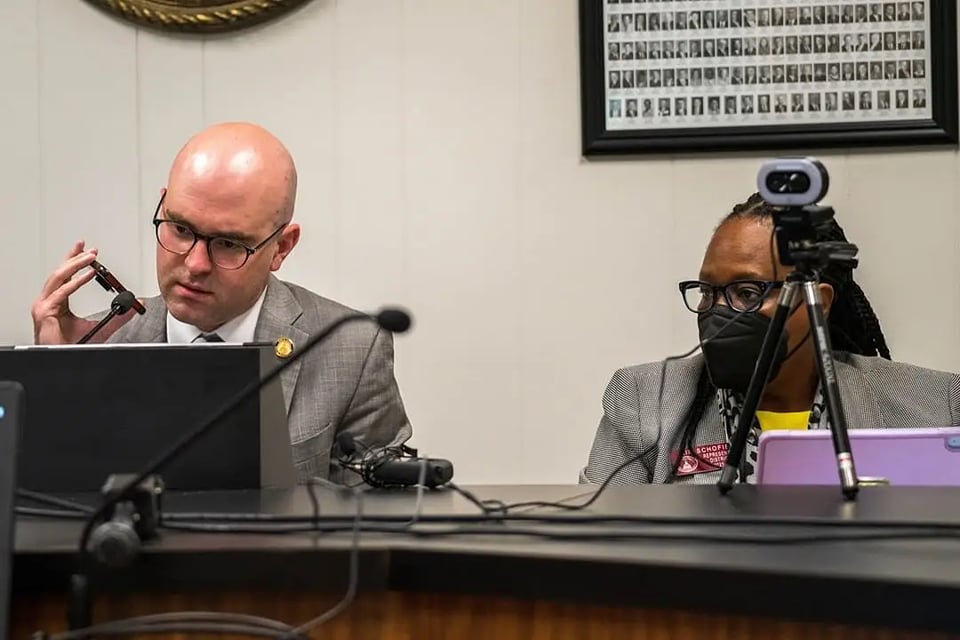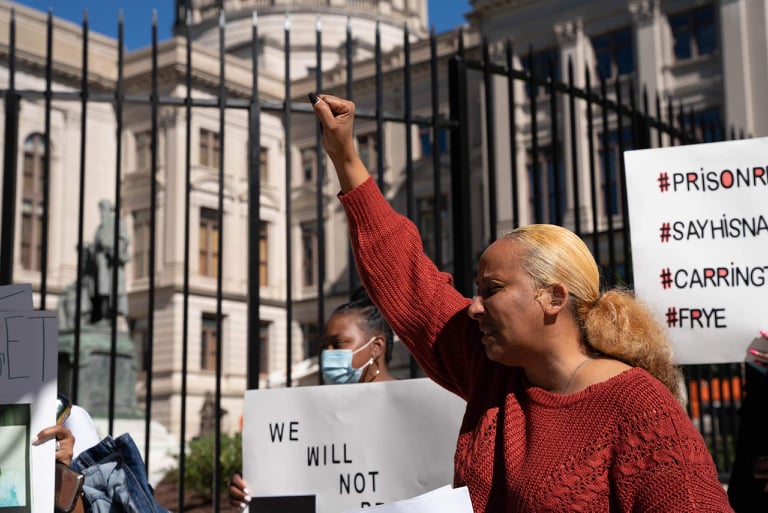Watch: Legislative Hearing on the Deadly Crisis in the GA Dept. of Corrections
In September 2021, the Georgia House Democratic Caucus Committee on Crisis in Prisons, made up of approximately eight state legislators co-chaired by Reps. Josh McLaurin and Kim Schofield, convened a hearing to examine the inhumane and life-threatening conditions in Georgia Department of Corrections (GDC) facilities. The formation of this committee was precipitated by the record numbers of homicides and suicides across Georgia’s prison system; increased reports of isolation, medical neglect, and other abhorrent practices; unprecedented correctional officer vacancy rates; the inadequate pandemic response; and GDC’s lack of transparency regarding these issues. Legislators heard testimony from staff and survivors of GA prisons, along with mothers whose sons were killed inside, public health & legal experts.

SCHR Executive Director Sara Totonchi: “Georgia prisons have never been a beacon of human rights or human decency. In fact, in every decade in recent memory, there has been a crescendo of violence.” In 2014, SCHR published a report on the crisis of violence in GA prisons, outlining already serious problems of understaffing, violence and neglect. In the past two years, these conditions have worsened beyond the crisis point, exacerbated by the unmitigated spread of COVID-19. Since January of 2020, at least 48 people have been killed in GA prisons. Suicides, too, have reached unprecedented levels- at the time of the hearing, at least 44 people had died by suicide in GDC custody since January 2020. But, as SCHR Managing Attorney Atteeyah Hollie pointed out, GDC has not reported any deaths publicly in 2021, and has not reported a single suicide since October of 2019.
Jennifer Bradley called our state’s criminal legal system a “festering wound” when she told lawmakers about her son Carrington “Sip” Frye, who was killed in a GA prison last year, just months before he was to come home. “It is one of my most fervent prayers today that out of Sip’s blood and out of my family’s devastation and pain, come a new and improved system that will turn Georgia’s department of corrections from places of retribution to places of true rehabilitation and restoration.”

Stephanie Lee’s son Justin Wilkerson was killed in January of this year. Nine months later, at the Sept. 23 hearing, she said she still has not received an autopsy report or a death certificate. “Justin’s (tentative parole) date was September 30. That’s one week from today. We should be celebrating his homecoming, instead of grieving and mourning the loss of his life. Justin was not given a death sentence, but he received one, because the GDC failed to protect Justin and placed him directly in harm’s way.”
Vanessa Garrett of Motherhood Beyond Bars voiced concerns about illegal abuses and indignities that continue against new mothers in GDC custody. Rep. Beth Moore asked Ms. Garrett to repeat the story of a woman who was repeatedly denied medical care after her episiotomy stitches became infected, who had to cut the stiches out herself with a pair of nail clippers. Rep. McLaurin then noted that GDC Commissioner Tim Ward had been invited but declined to attend or to send a representative: “I don’t know how you can explain what we just heard.”
Hope Johnson, Data Scientist at UCLA Law’s COVID Behind Bars Data Project, which provides information on COVID-19 in carceral settings for the Centers for Disease Control (CDC). The lack of consistency and transparency from GDC, she said, has made this job difficult. “The culture of secrecy and resistance to oversight in the GDC presents a significant threat to public health and safety.”
Last week, the COVID Behind Bars Data Project released a report naming Georgia’s among several state prison systems deliberately cloaking COVID-19 data from the public.
“It is imperative that lawmakers, and the general public, demand the same transparency and accountability from the leaders of our prison system that we would from any other branch of government that we entrust with people’s lives.” -Atteeyah Hollie, SCHR Managing Attorney, Impact Litigation Unit